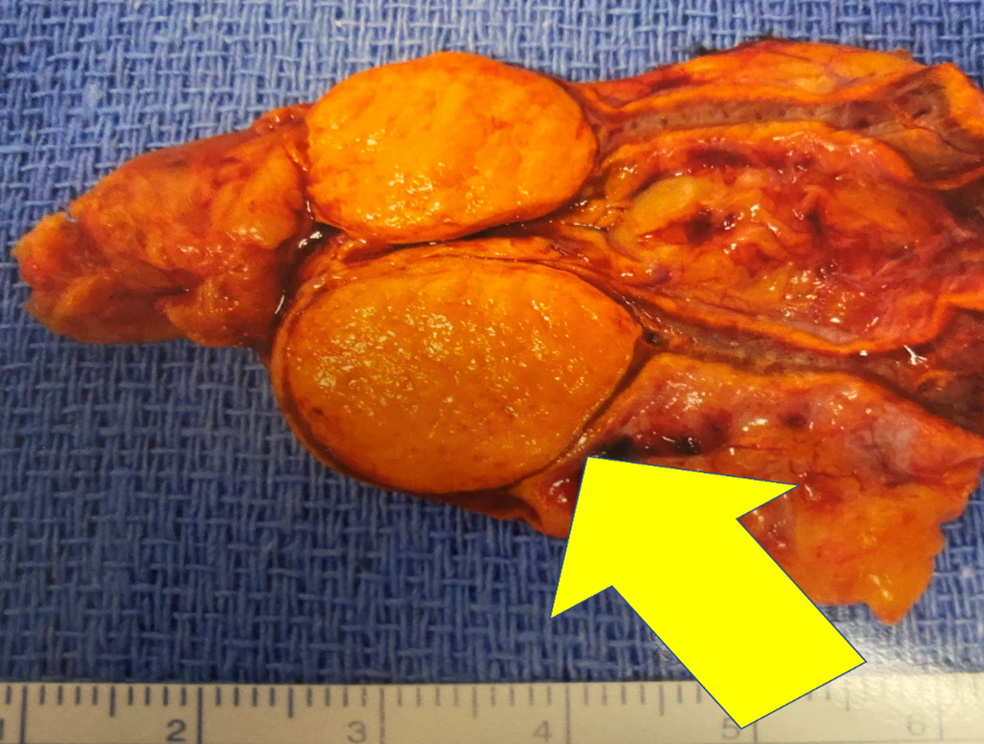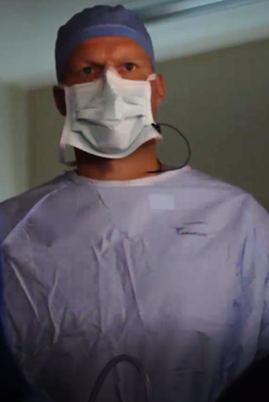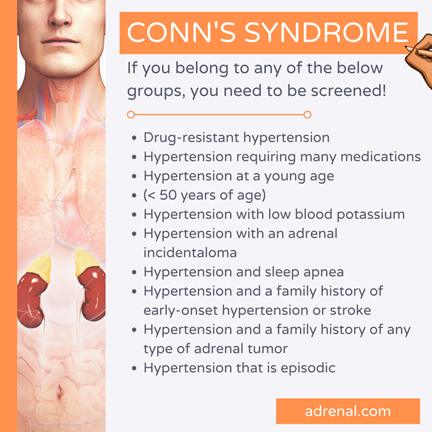Conn’s syndrome treatment: What’s best for me?

Conn's syndrome, also known as primary hyperaldosteronism, is a hormonal disorder that affects the adrenal glands. It is caused by the overproduction of aldosterone, a hormone that regulates salt and water balance in the body. This overproduction can lead to high blood pressure, low potassium levels, and other health problems.
Find out why Conn’s syndrome is a silent killer.
Further, Conn’s syndrome can severely affect a patient’s quality of life. While there are several treatment options available for Conn's syndrome, surgery is often the most effective and preferred choice. Medications just treat the symptoms; they don’t fix the underlying problem: the adrenal tumor.
Conn’s syndrome treatment: Will medication work?
Treatment options for Conn’s syndrome include medications that can help to reduce the production of aldosterone or block its effects on the body. However, these treatments do not address the root cause and are way less effective than surgery. The most common medications to treat Conn’s syndrome are anti-hypertensive medications such as aldosterone antagonists’ spironolactone or eplerenone or other potassium-sparing diuretics like amiloride. Often patients are being put on one blood pressure medication after another and are never diagnosed with Conn’s syndrome. It is of course good to treat high blood pressure acutely as a bridge to adrenal surgery which is curative, but do not get stuck on just taking blood pressure medications with no plan of fixing the underlying cause.
Conn’s syndrome treatment: Is surgery a better option?
When it comes to Conn's syndrome treatment, surgery is the preferred option for several reasons. First, surgery offers a definitive cure for the condition, with success rates approaching 100% at the Carling Adrenal Center. Surgical treatment for Conn's syndrome involves removing the affected tumor of the adrenal gland or glands. This procedure (adrenalectomy) can be performed using several different techniques. Read more about the different types of adrenal surgery here: https://www.adrenal.com/adrenal-surgery/adrenal-surgery-techniques
Another advantage of surgical treatment is that it can be performed relatively quickly and with minimal downtime. Most patients of the Carling Adrenal Center are able to return to their normal activities within a day or two of the procedure, with little to no long-term side effects. Of course, this is highly dependent on the experience of your adrenal surgeon.

Figure 1. Typical aldosterone producing adrenal tumor causing Conn’s syndrome after it was removed.
Conn’s syndrome treatment: Which adrenal surgeon and operation are best?
Dr. Carling is the world’s leading expert in adrenal gland surgery and curing Conn’s syndrome. When performed by Dr. Carling, a mini back scope adrenalectomy (MBSA) for hyperaldosteronism (Conn's Syndrome) typically takes less than 20-30 minutes.
Without a doubt, the best operation for removing the adrenal tumor that is causing hyperaldosteronism and Conn's syndrome is the MBSA. The operation can also be called the Mini Posterior Retroperitoneoscopic Adrenalectomy, because the operation is performed with very small scopes that go through the lower, outer back. The Mini Back Scope Adrenalectomy (MBSA) is the preferred technique in over 95% of adrenal surgery cases, and close to 100% in patients with primary hyperaldosteronism.
Read more about the MBSA procedure here: https://www.adrenal.com/adrenal-surgery/mini-scope-adrenal-surgery

Figure 2. Dr. Carling performing one of hundreds of mini back scope adrenalectomies (MBSA) for Conn’s syndrome.
Conn’s syndrome treatment: Will I be cured after surgery?
Patients who undergo surgery can expect to see a significant improvement in their blood pressure and potassium levels, as well as a reduction in their risk of developing other health complications associated with the condition. After surgery for Conn’s syndrome, the low potassium usually normalizes first, then the blood pressure will start improving over weeks to a few months.
Notably, patients will begin to feel better, younger, and their quality of life will significantly improve following surgery. It is unappreciated how poorly patients feel with Conn’s syndrome. The symptoms of fatigue, anxiety, depression, headache, memory difficulties, poor sex drive, and muscle cramping will soon just be a bad memory.
Conn’s syndrome treatment: Don’t wait
Conn’s syndrome can have serious consequences if left untreated. After your adrenalectomy, you’ll be wondering why you didn’t elect to do it sooner. If you have Conn’s syndrome, the best thing you can do for your health is to do your research and be your own advocate. Select the most experienced adrenal surgeon you can find and don’t risk it with a surgeon who has performed only a handful of adrenal operations.

Additional Resources:
- Learn more about the Carling Adrenal Center
- Learn more about Dr. Tobias Carling
- Learn more about our sister surgeons at the Norman Parathyroid Center, Clayman Thyroid Center and Scarless Thyroid Surgery Center
- Learn more about the Hospital for Endocrine Surgery